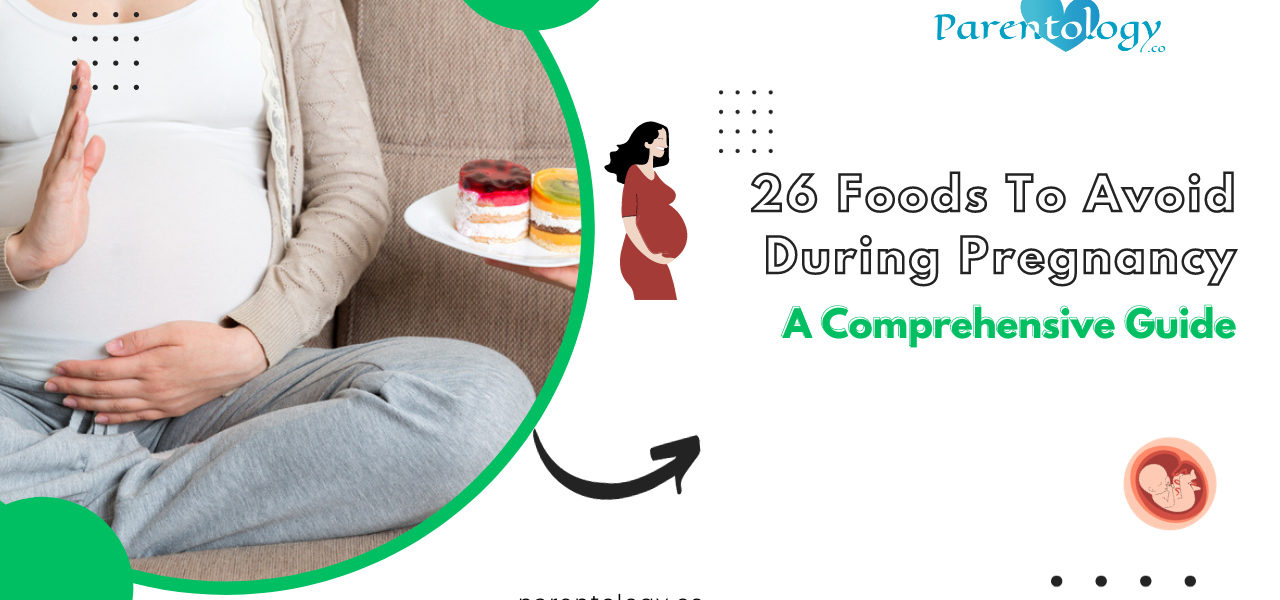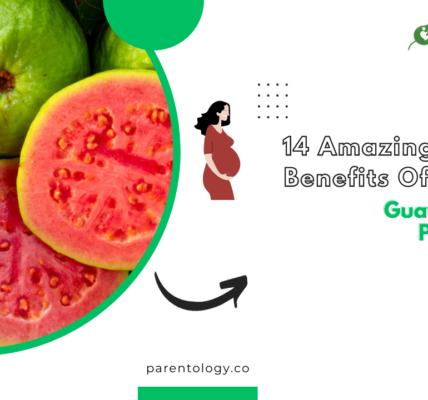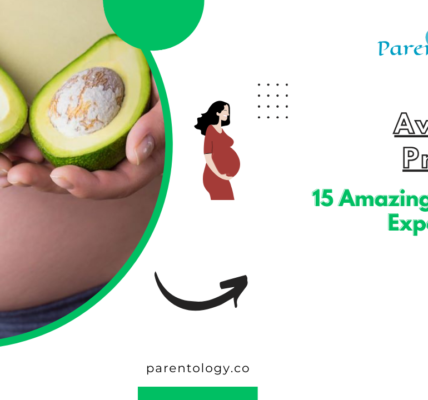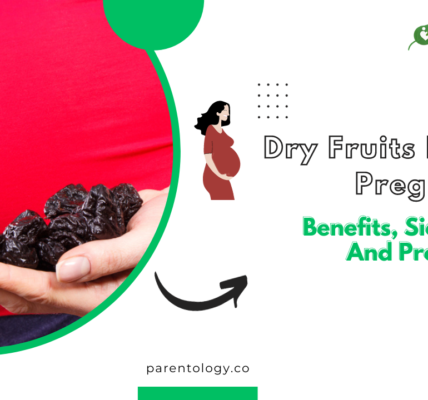26 Foods To Avoid During Pregnancy: A Comprehensive Guide
Embarking on the beautiful journey of pregnancy brings about various changes, not only in your body but also in your lifestyle and dietary choices. Ensuring a healthy and safe pregnancy involves being mindful of what you consume. In this detailed guide, we will explore the foods to avoid during pregnancy, providing you with valuable insights and expert recommendations.
Understanding Dietary Caution
Pregnancy demands extra care in choosing what goes into your body. Certain foods may pose risks to the health and development of the growing fetus. Let’s delve into the specifics of what not to eat when pregnant and why.
Foods to Avoid During Pregnancy
1. Raw Seafood
Why to Avoid: Raw or undercooked seafood may contain harmful bacteria and parasites, such as salmonella and listeria, which can lead to foodborne illnesses. These can pose a risk to both the expectant mother and the baby’s health.
Solution: Opt for fully cooked seafood to eliminate the risk of bacterial contamination. Choose a variety of fish that are low in mercury, such as salmon or shrimp, to enjoy the nutritional benefits without compromising safety.
2. High-Mercury Fish
Why to Avoid: Fish like shark, king mackerel, and swordfish have high mercury levels, which can harm the developing nervous system of the fetus, potentially leading to developmental issues.
Solution: Choose fish with lower mercury content, such as salmon, trout, and sardines. These provide essential omega-3 fatty acids crucial for fetal development while minimizing mercury exposure.


3. Undercooked or Raw Eggs
Why to Avoid: Raw or undercooked eggs carry the risk of salmonella infection, which can have severe consequences for both the mother and the baby’s health. Suggesting, this type of foods to avoid during pregnancy.
Solution: Ensure eggs are fully cooked, with both whites and yolks set. Avoid foods with raw or partially cooked eggs, like homemade mayonnaise or Caesar dressing.
4. Unpasteurized Dairy Products
Why to Avoid: Unpasteurized milk and dairy products can harbor harmful bacteria like listeria, posing a risk of infection that can be dangerous during pregnancy.
Solution: Choose pasteurized dairy products to enjoy the nutritional benefits without the risk of bacterial contamination. Check labels to ensure products have undergone pasteurization.
5. Caffeine
Why to Avoid: Excessive caffeine intake has been linked to an increased risk of miscarriage. While moderate consumption is generally considered safe, high levels may pose concerns.
Solution: Limit caffeine intake from coffee, tea, and sodas. Opt for decaffeinated versions or herbal teas as alternatives.
6. Highly Processed Foods
Why to Avoid: Processed foods often contain additives, preservatives, and high levels of unhealthy fats, contributing to inadequate nutrition and potential health risks.
Solution: Prioritize whole, nutrient-rich foods like fruits, vegetables, lean meats, and whole grains for a balanced and nourishing diet.
7. Organ Meat in Excess
Why to Avoid: While organ meats are nutrient-dense, excessive consumption may lead to an overdose of certain vitamins, especially vitamin A, which can be harmful in large amounts.
Solution: Include organ meats in moderation to benefit from their nutritional value without surpassing recommended vitamin A levels. Consult with a healthcare provider for personalized advice.
8. Alcohol
Why to Avoid: This is another foods to avoid during pregnancy. Alcohol consumption during pregnancy is linked to birth defects and developmental issues, making it essential to abstain from alcoholic beverages.
Solution: Completely avoid alchohol during pregnancy. Choose alcohol-free alternatives to ensure the safety and health of both the mother and the baby.
9. Unwashed Produce
Why to Avoid: Raw fruits and vegetables may carry harmful bacteria on their surfaces, posing a risk of infection.
Solution: Thoroughly wash and peel fruits and vegetables to remove potential contaminants. Choose organic produce when possible.
10. Raw Sprouts
Why to Avoid: Raw sprouts, such as alfalfa and mung bean sprouts, may harbor bacteria like salmonella and E. coli, presenting a risk of foodborne illnesses.
Solution: Cook sprouts thoroughly before consumption to eliminate the risk of bacterial contamination. Avoid raw sprouts in salads or sandwiches.


11. Excessive Intake of Vitamin A-Rich Foods
Why to Avoid: While vitamin A is essential for fetal development, excessive intake, especially from animal liver and high-dose supplements, can lead to birth defects and developmental issues.
Solution: Consume vitamin A-rich foods in moderation, ensuring that your intake falls within the recommended levels. Focus on obtaining vitamin A from a variety of sources like sweet potatoes, carrots, and leafy greens.
12. Unripe Papaya
Why to Avoid: Raw papaya contains latex, which can stimulate contractions and lead to miscarriage or premature labor. So suggesting this type of foods to avoid during pregnancy.
Solution: Opt for ripe papaya in moderate amounts as it lacks the concentration of latex found in unripe papaya. Consult with your healthcare provider to ensure it aligns with your specific health conditions.
13. Excessively Salty Foods
Why to Avoid: High sodium intake can contribute to water retention, elevate blood pressure, and potentially lead to complications like gestational hypertension.
Solution: Monitor and limit your salt intake. Choose natural seasoning alternatives like herbs and spices to add flavor to your meals.
14. Licorice
Why to Avoid: Compounds in licorice can affect blood pressure and may lead to imbalances, potentially causing issues during pregnancy.
Solution: Consume licorice in moderation or choose deglycyrrhizinated licorice (DGL) supplements, which have had the compound associated with blood pressure effects removed.
15. Excessively Sweet Foods
Why to Avoid: High sugar intake may contribute to gestational diabetes, excessive weight gain, and potential complications during pregnancy.
Solution: Opt for natural sweeteners like honey or maple syrup and limit added sugars. Embrace a balanced diet rich in whole foods.
16. Fast Food
Why to Avoid: Regular consumption of fast food is linked to excessive weight gain, an increased risk of gestational diabetes, and a lack of essential nutrients.
Solution: Choose nutritious alternatives, cook at home whenever possible, and prioritize a variety of fresh, whole foods.
17. Uncooked or Undercooked Meat
Why to Avoid: Beyond the initial list, ensuring that all meat is thoroughly cooked is crucial to prevent bacterial infections that can harm both the mother and the baby.
Solution: Cook meat until it reaches a safe internal temperature to eliminate the risk of bacterial contamination. Avoid rare or undercooked meat during pregnancy.
18. Excessive Intake of Processed Meats
Why to Avoid: Processed meats often contain additives and preservatives that may be harmful in excess, contributing to potential health risks.
Solution: Consume processed meats in moderation and prioritize fresh, lean meats. Choose healthier alternatives like grilled chicken or turkey.


19. Excessively Spicy Foods
Why to Avoid: These are other types of foods to avoid during pregnancy. While moderate spice is generally safe, excessively spicy foods may lead to discomfort, especially if the mother experiences heartburn or digestive issues.
Solution: Pay attention to your body’s reactions and limit the intake of overly spicy foods if they cause discomfort. Opt for milder seasoning options.
20. Artificial Food Additives
Why to Avoid: Artificial additives and preservatives found in processed foods may have unknown effects on fetal development and are best minimized.
Solution: Opt for whole, natural foods to reduce exposure to artificial additives. Read food labels and choose products with minimal processing.
21. Unwashed Herbs and Vegetables
Why to Avoid: Raw herbs and vegetables may carry contaminants that pose a risk of infection. Washing them thoroughly is crucial for eliminating potential dangers.
Solution: Ensure all herbs and vegetables are cleaned meticulously before consumption. Choose organic produce when possible, and consider using a produce wash.
22. Excessive Consumption of Nuts
Why to Avoid: While nuts are a healthy snack, their high-calorie content can contribute to excessive calorie intake, potentially leading to unwanted weight gain.
Solution: Enjoy nuts in moderation, incorporating them into a well-balanced diet. Opt for a variety of nuts to benefit from their diverse nutritional profiles.
23. Unpasteurized Honey
Why to Avoid: Raw honey may contain bacteria that pose a risk during pregnancy, potentially leading to foodborne illnesses.
Solution: Choose pasteurized honey to eliminate the risk of bacterial contamination. Ensure that honey-based products are made with pasteurized honey.
24. Excessive Intake of Herbal Supplements
Why to Avoid: Herbal supplements may interact with pregnancy hormones, leading to complications. It’s crucial to consult with a healthcare provider before taking any herbal supplements.
Solution: Seek guidance from your healthcare provider before incorporating herbal supplements into your routine. They can provide personalized advice based on your specific health conditions.
25. Excessive Intake of Processed Snacks
Why to Avoid: Processed snacks often contain unhealthy fats, high levels of sodium, and additives, contributing to inadequate nutrition and potential health risks.
Solution: Choose nutrient-dense snacks like fresh fruit, vegetables with hummus, or homemade trail mix. Minimize the consumption of processed snack foods.
26. Excessive Intake of Carbonated Beverages
Why to Avoid: Carbonated beverages are another types of foods to avoid during pregnancy. High sugar content in carbonated beverages that can contribute to gestational diabetes, excessive weight gain, and potential complications during pregnancy.
Solution: Choose healthier drink options like water, herbal tea, or diluted fruit juices. Limit the intake of sugary and carbonated beverages for optimal maternal and fetal health.


Nutrition Tips for a Healthy Pregnancy
Beyond avoiding specific foods, ensuring you receive essential nutrients is paramount for a healthy pregnancy. Consider incorporating the following tips into your diet:
- Folate and Iron-Rich Foods: Consume foods high in folate and iron, crucial for fetal development. Leafy greens, fortified cereals, and lean meats are excellent sources.
- Calcium Sources: Ensure an adequate intake of calcium for bone development. Dairy products, fortified plant-based milk, and leafy greens contribute to your calcium needs.
- Omega-3 Fatty Acids: Include sources of omega-3 fatty acids, such as fatty fish (like salmon), flaxseeds, and walnuts, to support the baby’s brain and eye development.
- Fiber-rich Foods: Combat constipation by incorporating fiber-rich foods like whole grains, fruits, and vegetables into your diet.
- Hydration: Stay hydrated with water, herbal teas, and diluted fruit juices. Proper hydration supports amniotic fluid levels and aids in nutrient transport.
- Protein Intake: Include lean protein sources like poultry, fish, beans, and legumes to support the baby’s growth and development.
- Moderate Carbohydrates: Choose complex carbohydrates like whole grains to provide sustained energy and regulate blood sugar levels.
- Regular, Balanced Meals: Opt for regular, balanced meals to maintain steady energy levels and prevent excessive hunger.
- Supplementation: If advised by your healthcare provider, take prenatal vitamins to fill potential nutrient gaps.
Exercise and Rest
In addition to a healthy diet, incorporating regular exercise and ensuring adequate rest are integral components of a well-rounded pregnancy routine:
- Safe Exercise Practices: Engage in safe and moderate exercise, such as walking, swimming, or prenatal yoga, to promote overall well-being.
- Adequate Rest: Prioritize quality sleep to support your body’s physical and emotional demands during pregnancy. Establish a calming bedtime routine for better sleep quality.
- Stress Management: Practice stress-reducing techniques like deep breathing, meditation, or prenatal massages to promote a positive mental state.
Regular Prenatal Checkups
Consistent prenatal checkups with your healthcare provider are vital for monitoring your health and the baby’s development. Regular visits allow for early detection and management of any potential issues, ensuring a smoother pregnancy journey.
Common Pregnancy Discomforts and Solutions
Pregnancy often comes with certain discomforts. Here are common issues and potential solutions:
- Nausea and Morning Sickness: Consume small, frequent meals, stay hydrated, and consider ginger supplements to alleviate nausea.
- Back Pain: Practice good posture, perform gentle exercises, and consider prenatal massages to ease back pain.
- Swelling: Elevate your legs when possible, stay hydrated, and avoid standing for prolonged periods to reduce swelling.
- Heartburn: Opt for smaller, more frequent meals, avoid spicy or acidic foods, and sleep with your head elevated to minimize heartburn.
FAQs About Foods to Avoid During Pregnancy
Q1: Can I eat sushi during pregnancy if it’s vegetarian?
A: While vegetarian sushi may seem safer, the risk of cross-contamination still exists. It’s advisable to avoid all forms of raw or undercooked sushi.
Q2: Is it safe to consume artificial sweeteners during pregnancy?
A: Moderation is key. Some artificial sweeteners are considered safe, but it’s advisable to limit their intake and opt for natural sweeteners when possible.
Q3: Are there specific cheeses to avoid during pregnancy?
A: Soft cheeses like brie, feta, and blue cheese may harbor bacteria. Opt for hard cheeses or ensure that soft cheeses are made from pasteurized milk.
Q4: Can I have herbal tea during pregnancy?
A: Certain herbal teas are safe, but others may contain herbs that can be harmful during pregnancy. Consult your healthcare provider for personalized advice.
Q5: Should I completely eliminate fish from my diet?
A: No, fish is a valuable source of omega-3 fatty acids. Choose low-mercury options like salmon and sardines, and consume them in moderation.
Q6: Can I indulge in occasional treats like chocolate during pregnancy?
A: Yes, indulging in moderate amounts of dark chocolate is generally considered safe and may even have health benefits.
Q7: Is it safe to consume spicy foods during pregnancy?
A: Yes, moderate consumption of spicy foods is safe. However, if you experience heartburn or digestive issues, it’s advisable to limit spicy food intake.
Q8: Can I eat deli meats during pregnancy?
A: Deli meats may be contaminated with listeria. If you choose to consume them, heat them until steaming to reduce the risk.
Q9: Are energy drinks safe during pregnancy?
A: It’s best to avoid energy drinks during pregnancy as they often contain high levels of caffeine and other stimulants.
Q10: Can I eat rare-cooked meat during pregnancy?
A: It’s safer to avoid rare-cooked meat during pregnancy due to the risk of bacterial contamination. Ensure that meat is fully cooked.
Conclusion
Navigating a Healthy Pregnancy Diet
Being mindful of your dietary choices during pregnancy is crucial for the well-being of both you and your baby. By avoiding certain foods and embracing a balanced, nutritious diet, you contribute to a healthy and safe pregnancy journey. Consult your doctor about foods to avoid during pregnancy and then create a proper dietary chart. For further guidance, support, and expert insights on parenting, explore Parentology, your trusted companion on the exciting path to parenthood.
Remember, every pregnancy is unique, and it’s essential to tailor your approach to your individual needs. Always consult with your healthcare provider for personalized advice and guidance throughout your pregnancy journey.
Infographics





